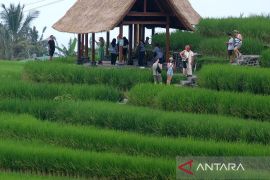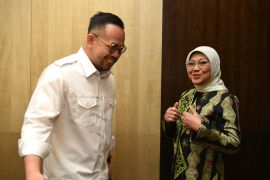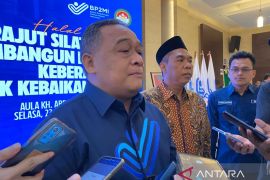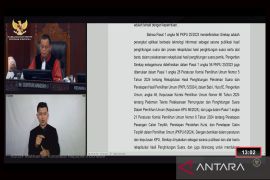"The discussions on food will always be referring to retrenchments and increase relating to various factors relating to the 20-20-20 regulation, namely 20 pct reduction of carbon emissions, boosting productivity by 20 pct, and lowering unemployment also by 20 pct," Minister of Trade Gita Wirjawan told a meet the press of Kadin Indonesia in Jakarta Friday night.
The food security conference is particularly aimed at drawing the interest and the development of agendas of national action from various circles on food security by way of cooperation between the government, private circles and the general public.
Besides the Minister of Trade, also on hand were General Chairman of Kadin Indonesia Suryo Bambang Sulistyo, economist observer Aviliani, and a number of Kadin Indonesia executives.
Gita said food consumption will increase globally by 40-50 pct from 17 trillion kilograms of calories to 27 trillion kilograms of calories in 2050. The increase in food consumption will be faster in the developing countries, including Indonesia.
"In Indonesia the development of the population from 240 million to 300 million in the next 30-40 years needs to be supported by food security," Gita said.
Sustainable agricultural development, Gits said, is not only about supplies but also demands based on consumption patterns.
"Agriculture is not only about food, but also energy. And also innovations in terms of funding. How can we provide the funds on for the main doers but also those in the plasms," Gita said.
Gita said access to funding for the farmers cannot be gained in a short period of time, but with longer calculations like 10-25 years.
Suryo said the problem of food security is a strategic problem, due to the significant value of imported Indonesian food.
"We can also play a bigger role in food procurements if we really wished to be involved in the field," Suryo said.
The involvement of private circles in food procurements,
Suryo said, also needs supporting and correct policies in the form of fiscal and monetary stimuli. (*)
Editor: Ruslan Burhani
Copyright © ANTARA 2012











